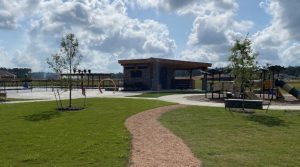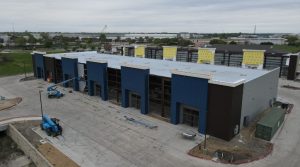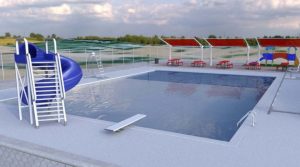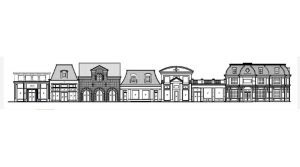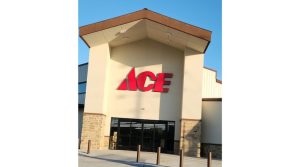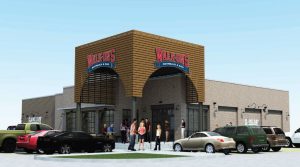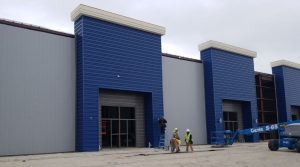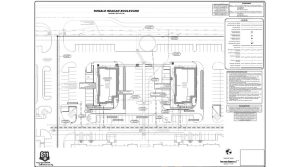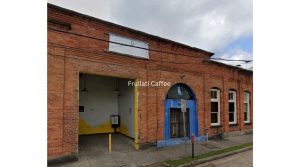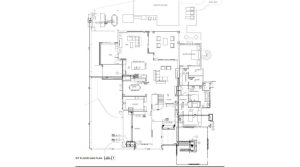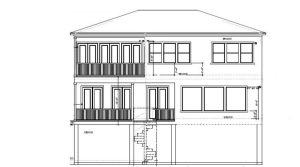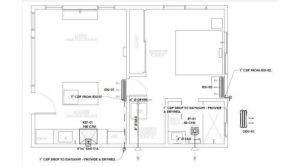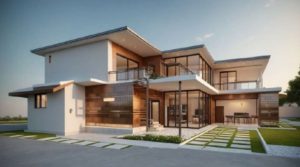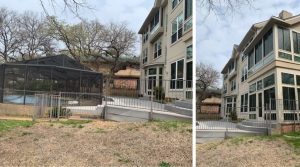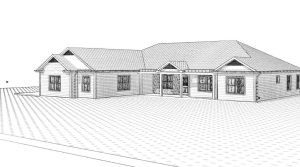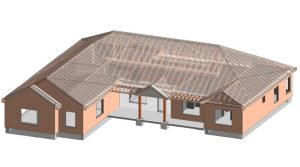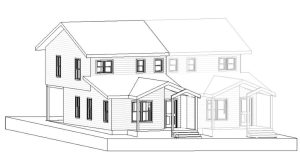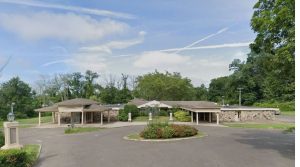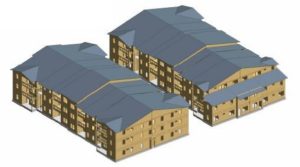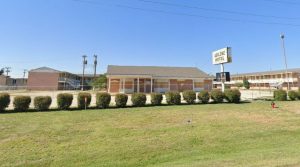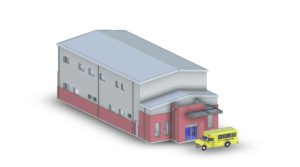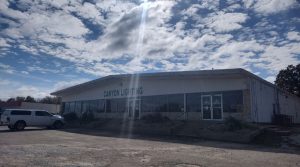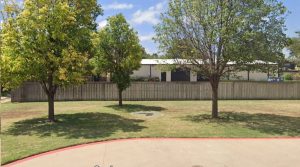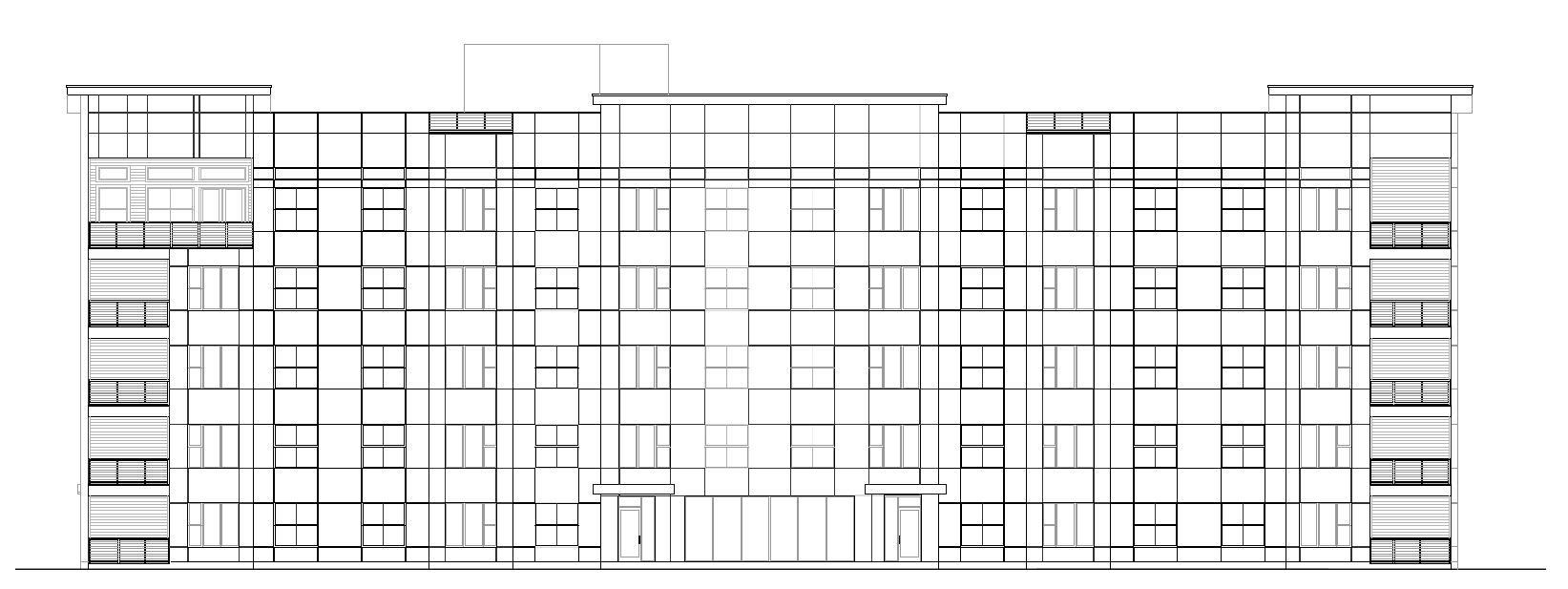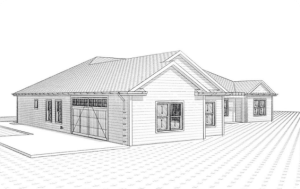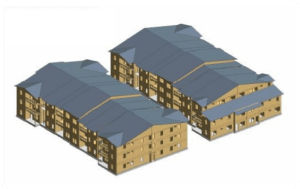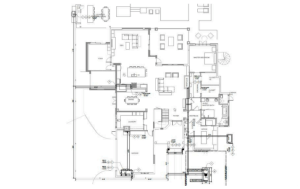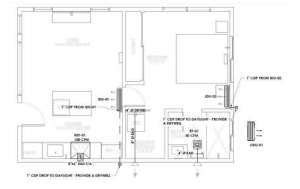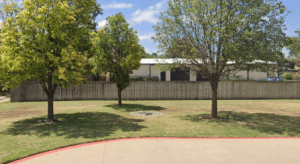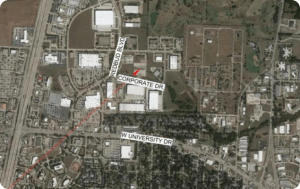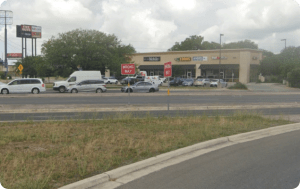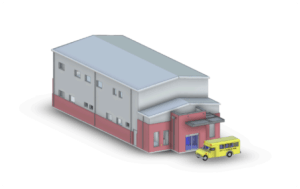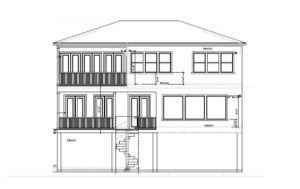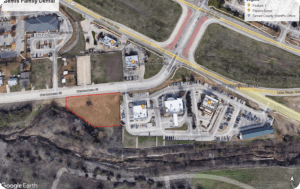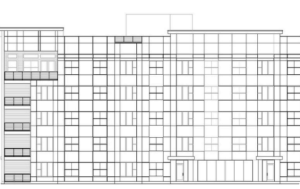Innovative MEP Design Strategies for Florida’s Sports and Entertainment Venues
As Florida’s vibrant sports and entertainment scene continues to flourish, the demand for innovative and efficient Mechanical, Electrical, and Plumbing (MEP) design strategies has never been more crucial. From bustling stadiums hosting exhilarating games to state-of-the-art arenas playing home to world-class performances, these venues require a robust infrastructure that not only supports massive crowds but also enhances the overall experience for attendees. In this blog post, we will explore cutting-edge MEP design strategies tailored specifically for Florida’s unique climate and architectural landscape. From energy-efficient HVAC systems that combat the sweltering heat to advanced electrical systems that power spectacular light shows, we’ll delve into the latest trends and technologies that ensure these venues are not only functional but also sustainable and aesthetically pleasing. Join us as we uncover the innovative solutions shaping Florida’s sports and entertainment venues into exemplary models of modern design.
1. Introduction to MEP Design in Sports and Entertainment Venues
The design and integration of Mechanical, Electrical, and Plumbing (MEP) systems play a pivotal role in the functionality and comfort of sports and entertainment venues, particularly in a vibrant state like Florida. Home to a rich tapestry of sports teams, concert halls, and entertainment complexes, Florida’s venues must not only accommodate large crowds but also ensure an exceptional experience for attendees, athletes, and performers alike.
MEP design in these facilities goes beyond mere infrastructure; it’s about creating an environment that enhances the thrill of the game, the excitement of a concert, or the intimacy of a theater performance. From state-of-the-art HVAC systems that maintain optimal comfort levels during sweltering Florida summers to advanced lighting designs that accentuate the mood of an event, every element must be meticulously planned and executed.
Moreover, with the growing emphasis on sustainability and energy efficiency, MEP design strategies are increasingly incorporating innovative technologies and practices. This includes the utilization of renewable energy sources, smart building technologies that optimize resource use, and water-efficient plumbing systems that reduce waste.
2. Understanding Florida’s Unique Climate Challenges
Florida’s climate is a double-edged sword for sports and entertainment venues. While the sunshine state is renowned for its warm temperatures and alluring beaches, it also faces a unique set of climate challenges that must be meticulously considered in MEP (Mechanical, Electrical, and Plumbing) design strategies. The high humidity and frequent rainstorms can wreak havoc on building systems if not properly addressed.
One of the primary concerns is temperature regulation. With average summer temperatures often soaring into the 90s, maintaining a comfortable indoor environment is crucial for both athletes and spectators. Advanced HVAC systems equipped with humidity control features become essential in these venues to ensure that indoor air quality remains optimal, preventing discomfort that could drive patrons away. Additionally, energy efficiency is key; integrating smart climate control systems can significantly reduce energy consumption, aligning with Florida’s push for sustainability.
3. Key MEP Systems in Sports and Entertainment Facilities
In the bustling world of sports and entertainment venues, Mechanical, Electrical, and Plumbing (MEP) systems play a crucial role in ensuring operational efficiency, guest comfort, and overall safety. The unique demands of these large-scale facilities require innovative MEP design strategies that cater to a diverse range of activities and audiences. Here, we’ll explore the key MEP systems essential for the seamless functioning of Florida’s vibrant sports arenas and entertainment complexes.
**1. HVAC Systems:**
Heating, Ventilation, and Air Conditioning (HVAC) systems are vital in maintaining a comfortable environment for spectators and participants alike. In Florida’s humid climate, advanced HVAC solutions not only regulate temperature but also manage humidity levels, preventing discomfort during events. Energy-efficient systems, such as variable refrigerant flow (VRF) technology, can optimize performance while reducing energy consumption, aligning with sustainability goals.
**2. Plumbing Systems:**
Effective plumbing is indispensable in venues that host thousands of visitors. High-capacity plumbing systems must be designed to handle significant water usage and waste management without disruption. Incorporating smart fixtures, such as sensor-activated faucets and water-efficient toilets, not only enhances the guest experience but also conserves precious resources, which is increasingly important in Florida’s environment.
**3. Electrical Systems:**
Robust electrical systems are at the heart of any sports or entertainment facility, powering everything from lighting to audio-visual equipment. Innovative design strategies focus on integrating energy management systems that monitor and optimize electricity usage in real time. Incorporating renewable energy sources, such as solar panels, can also reduce operational costs and enhance the venue’s appeal as a sustainable choice for events.
4. Energy Efficiency Strategies for Large Venues
Energy efficiency is not just a trend; it’s a necessity for large sports and entertainment venues, especially in Florida’s climate, where the heat and humidity can lead to soaring energy costs. Implementing innovative energy efficiency strategies can significantly reduce operational expenses, enhance sustainability, and provide a more comfortable experience for guests.
One of the most effective strategies is the integration of advanced HVAC systems that utilize variable refrigerant flow (VRF) technology. These systems adjust the amount of refrigerant flowing to each indoor unit based on real-time demand, ensuring optimal comfort while minimizing energy consumption. Coupled with smart thermostats and occupancy sensors, these systems can significantly reduce energy waste during events with fluctuating attendance.
5. Integrating Smart Technology in MEP Systems
In today’s rapidly evolving landscape of sports and entertainment venues, integrating smart technology into Mechanical, Electrical, and Plumbing (MEP) systems is no longer just an option—it’s a necessity. With the increasing demand for enhanced efficiency, sustainability, and user experience, the application of intelligent systems within MEP design is transforming how venues operate and engage with their audiences.
Imagine a vast stadium filled with thousands of fans, each equipped with a smartphone. Smart technology allows for real-time data collection and analysis, enabling venue operators to monitor energy usage, HVAC performance, and water consumption seamlessly. By utilizing IoT (Internet of Things) devices, venues can collect vast amounts of data, providing insights into occupancy levels and environmental conditions. For instance, sensors can detect when areas are underutilized, allowing the MEP systems to adjust automatically—optimizing energy consumption and reducing operational costs.
Moreover, integrating smart technology enhances the overall visitor experience. Automated lighting and climate control systems can respond to the influx of people entering the venue, ensuring optimal comfort levels. Imagine arriving at a concert where the lighting subtly adjusts to create an inviting atmosphere as the crowd gathers—this is the power of smart MEP integration.
6. Sustainable Design Practices for Environmental Impact
In recent years, the push for sustainability has become a cornerstone of modern design, and this is particularly evident in the realm of sports and entertainment venues in Florida. As the state grapples with the effects of climate change, innovative MEP (Mechanical, Electrical, and Plumbing) design strategies are emerging that not only enhance the functionality of these large spaces but also minimize their environmental footprint.
Sustainable design practices begin with a thorough assessment of energy consumption and resource utilization. Implementing energy-efficient HVAC systems allows venues to maintain comfortable temperatures while significantly reducing energy costs. For instance, advanced building automation systems can optimize heating and cooling based on real-time occupancy data, ensuring that energy is not wasted when spaces are unoccupied.
Water conservation is another critical component. Rainwater harvesting systems can be integrated into venue designs to collect and reuse rainwater for irrigation or even toilet flushing. Additionally, low-flow fixtures and smart irrigation systems help to drastically reduce water consumption without compromising the visitor experience.
7. Acoustic Considerations in Venue Design
When it comes to designing sports and entertainment venues in Florida, acoustic considerations are paramount. The vibrancy and energy of live events hinge not just on visuals but also on sound quality. An arena filled with roaring fans or the thundering applause after a thrilling performance can be both electrifying and overwhelming; thus, ensuring that the acoustics enhance the experience is crucial.
Effective acoustic design begins with understanding the venue’s specific requirements. For instance, a concert hall demands different acoustic treatment compared to a multi-purpose sports arena. Utilizing advanced modeling software can help engineers predict how sound will travel within the space, allowing for strategic placement of sound-absorbing materials, diffusers, and reflectors.
In Florida’s humid climate, materials must also withstand moisture while maintaining their acoustic properties. This often means selecting specialized soundproofing materials that can endure the state’s unique environmental challenges. Moreover, incorporating features such as curved surfaces or adjustable acoustics can provide flexibility, ensuring that the venue can cater to a variety of events—from rock concerts to basketball games—without compromising sound quality.
8. Enhancing Indoor Air Quality for Occupant Comfort
In the vibrant atmosphere of Florida’s sports and entertainment venues, enhancing indoor air quality (IAQ) is crucial for ensuring occupant comfort and satisfaction. With the state’s warm, humid climate, effective MEP (Mechanical, Electrical, and Plumbing) design strategies can significantly improve the overall experience for attendees and staff alike.
One of the key strategies involves selecting high-efficiency HVAC systems that not only regulate temperature but also filter and circulate fresh air throughout the venue. Advanced filtration systems, such as HEPA filters, can capture a higher percentage of airborne pollutants, allergens, and pathogens, contributing to a healthier indoor environment. Moreover, integrating smart ventilation systems that adjust air flow based on occupancy levels ensures that spaces remain well-ventilated without wasting energy.
9. Flexible MEP Solutions for Multi-Use Spaces
In the dynamic landscape of Florida’s sports and entertainment venues, the demand for flexible Mechanical, Electrical, and Plumbing (MEP) solutions has never been more critical. With the rise of multi-use spaces that host everything from high-energy sports events to intimate concerts and large-scale conventions, the ability to adapt MEP systems to varying needs is essential for maximizing functionality and enhancing the visitor experience.
One of the most innovative strategies involves designing MEP systems with modular components that can be easily reconfigured. For instance, lighting systems that can transition from bright, focused beams for sporting events to softer, ambient lighting for gala dinners are invaluable. Similarly, HVAC systems should be equipped with smart technology that adjusts air flow and temperature based on occupancy levels and the nature of the event, ensuring comfort while optimizing energy efficiency.
10. Emergency Preparedness and Resiliency in MEP Design
In Florida, where the sun shines brightly but storms can roll in unexpectedly, emergency preparedness and resiliency in MEP (Mechanical, Electrical, and Plumbing) design are paramount, especially for sports and entertainment venues. The unique climate and environmental challenges of the state necessitate a proactive approach to ensure these spaces can withstand adverse conditions while continuing to provide a safe and enjoyable experience for patrons.
A key aspect of this strategy is the incorporation of robust backup systems. For instance, designing electrical systems with redundant power supplies, such as generators and uninterruptible power supplies (UPS), ensures that critical operations can continue even in the event of a power outage. This is vital for venues hosting large crowds, where safety and security are paramount. Additionally, integrating advanced HVAC systems that can maintain air quality and temperature during emergencies enhances the comfort and safety of attendees.
In conclusion, the integration of innovative MEP design strategies is pivotal in shaping the future of Florida’s sports and entertainment venues. By embracing cutting-edge technologies and sustainable practices, venue developers and operators can enhance not only the efficiency and safety of their facilities but also the overall experience for attendees. From advanced HVAC systems that ensure optimal comfort to smart lighting and energy management solutions, these strategies pave the way for venues that are not only functional but also environmentally responsible.
learn more: https://www.gtcc.edu/
Visit : https://gdiengdesign.com/gdiengdesign-mep/
